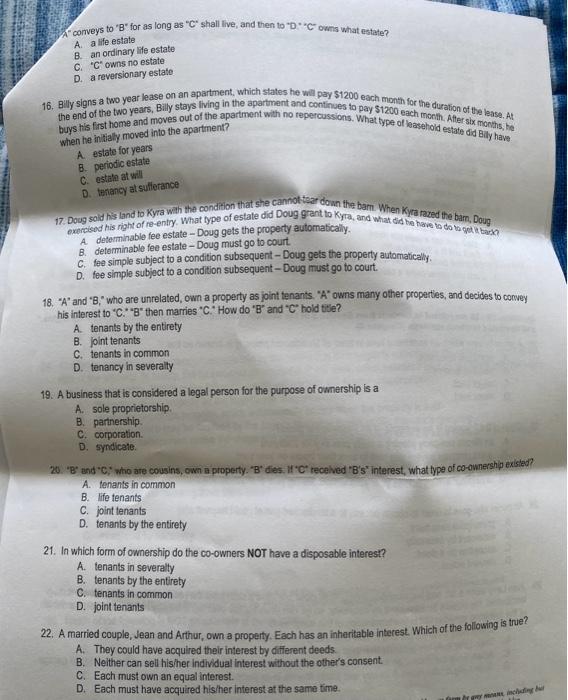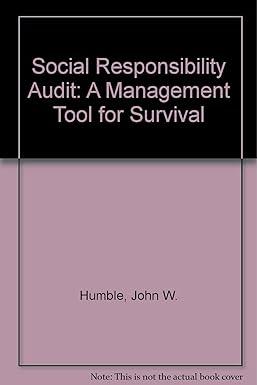conveys to \" \\( B \\) \" for as long as \" \\( C \\) ' shall live, and then to \" \\( \\mathrm{D} \\) \" \" \\( \\mathrm{C} \\) ' owns what estate? A. a life estate B. an ordinary life estate C. \"C' owns no estate D. a reversionary estate 16. Blly signs a two year lease on an apartment, which states he will pay \\( \\$ 1200 \\) each month for the duration of the lease, At buys tis first home and moves out of the apartment with no repercussions. What type of loch mocili. After six months, he when he initily moved into the apartment? A. estate for years B. periodic estate C. estaha at will D. tenancy at sufierance 17. Doug sold his land to Kyra with the condition that she cannottear down the barn. When Kyra raced the barn, Doug A. deterninable fee estate - Doug gets the property automatically. B. determinable fee estate - Doug must go to court. C. fee simple subject to a condition subsequent - Doug gets the property automaticaling. D. fee simple subjact to a condition subsequent - Doug inust go to court. 18. \"A' and ' \\( B \\),\" who are unrelated, own a property as joint tenants. \" \\( A \\) \" owns many other properties, and decides to cowey his interest to \" \\( C \\).\" \" \\( B \\) \" then marries \" \\( C \\). How do ' \\( B \\) ' and \" \\( C \\) ' hoid title? A. tenants by the entirety B. joint tenants C. tenants in common D. tenancy in severalty 19. A business that is considered a legal person for the purpose of ownership is a A. sole proprietorship. B. partnership. C. corporation. D. syndicate. 20. 'B' and ' \\( \\mathrm{C} \\) ', who are cousins, own a property. \"B' dies, it 'C' recelved ' \\( \\mathrm{B} \\) ' \\( \\mathrm{s} \\) ' interest, what type of co-ownership existed? A. tenants in common B. life tenants C. joint tenants D. tenants by the entirety 21. In which form of ownership do the co-owners NOr have a disposable interest? A. tenants in severalty B. tenants by the entirety C. tenants in common D. joint tenants 22. A married couple, Jean and Arthur, own a property. Each has an inheritable interest. Which of the following is true? A. They could have acquired their interest by different deeds. B. Neither can sell hisher individual interest without the other's consent. C. Each must own an equal interest. D. Each must have acquired hischer interest at the same time







